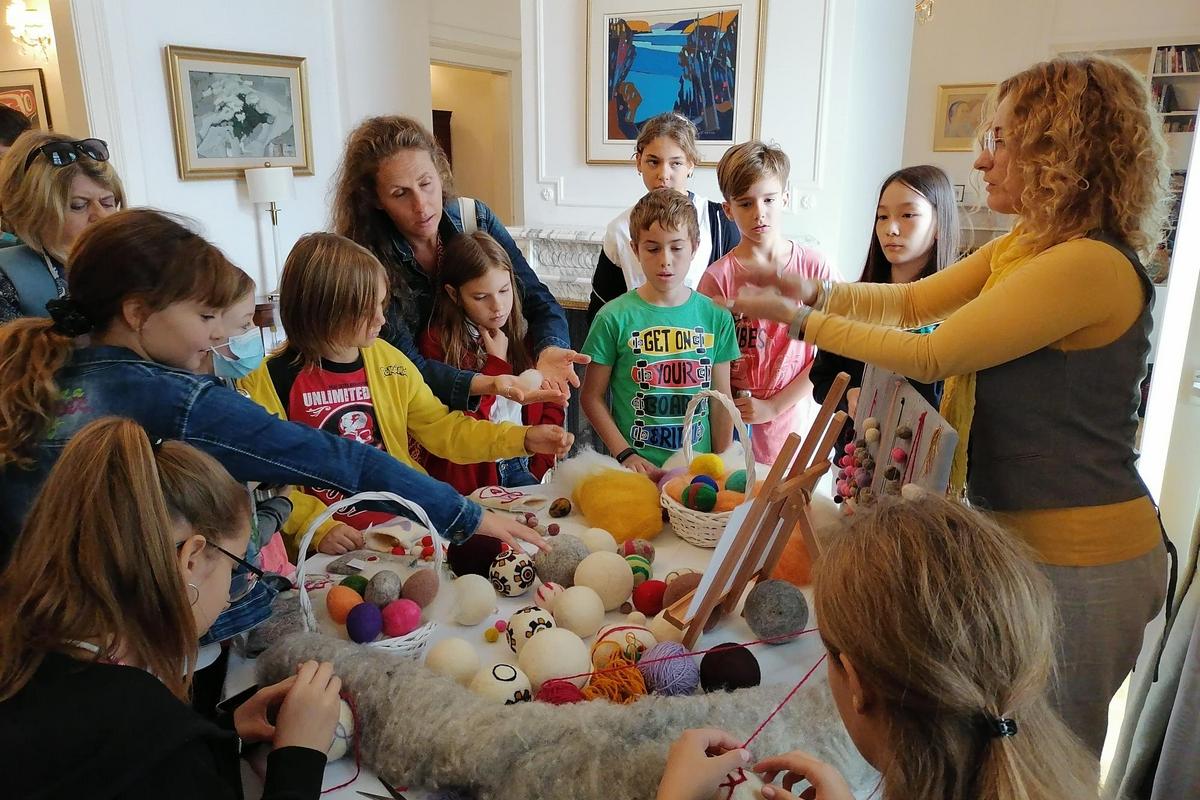The fact that our children are more than willing to engage in needlework and that they have to be given an opportunity to learn traditional skills, even if that is optional, was validated by the first Student Old Crafts Colony which gathered over 30 hard-working students from elementary and high schools from all over Serbia at the Canadian Embassy in Belgrade.

The students presented their skills in felting, weaving and embroidery techniques, while the event’s central message was that children have to be educated in order to learn how to respect tradition and preserve our cultural heritage.
Students from Odžaci, Zemun, Inđija, Sremska Mitrovica, Knjaževac and Bela Palanka participated in the first Student Old Crafts Colony. The event was organized by Ethno Network, with the support of the government’s Coordinating Body for Gender Equality, the Ministry of Education and the Embassy of Canada, as part of the programme titled “Educating Children to Preserve Tradition”.
“The student colony is an opportunity for students from elementary and high schools from different parts of Serbia to gather in one place, meet their peers from international schools in Belgrade and acquire new knowledge by working with mentors from Ethno Network. For us, such colonies are extremely important, because the transfer of know-how to children and young people is a prerequisite for the preservation of heritage and cultural identity”, said the president of Ethno Network and executive director of NALED, Violeta Jovanović.
At the initiative of the diplomatic community, groups of students from international schools in Belgrad visited the colony where they learned the skills of embroidery, weaving and felting from their peers from other parts of the country.
“Today we witnessed the creativity of new generations, who have shown great interest and enthusiasm for old techniques. That is why it is important that student colonies become a regular practice, because they are valuable for the development of creative and youth entrepreneurship. The Embassy of Canada will continue to support such events, which also enjoy the support of local communities and craft associations gathered under the auspices of Ethno Network,” said Valerie Lane, wife of Canadian Ambassador, H.E. Giles Norman, who were the hosts and diplomatic patrons of the first Student Colony.
The Ethno Network has been implementing the programme “Educating Children to Preserve Tradition” for years, and since 2020, the programme has been enjoying the support of the Ministry of Education, Science and Technological Development. By the Minister’s decision, the umbrella association Ethno Network was granted the status of a public interest programme, which boosts the competencies of educators. Last year, more than 50 teachers attended seminars organized by Ethno Network, during which they worked on acquiring skills in traditional embroidery, weaving and felting techniques.
Prizes for the most successful student teams
Awards for the best works in three categories were also handed out during the Student Colony. In the 1st-4th grade category, the Vuk Karadžić Elementary School from Knjaževac won first place, in the 5th-8th grade category the Jovan Jovanović Zmaj Elementary School from Sremska Mitrovica was given the first award, while the Dr Đorđe Natošević Vocational High School from Inđija was the winner in the high school category.
Canadian Ambassador to Serbia, H.E. Giles Norman and his wife Valerie Lane, President of the International Women’s Club, Eun Hai Kim and members of the governing bodies of Ethno Network, David Van De Kamp and Zlatko Cvetković were the jury members.